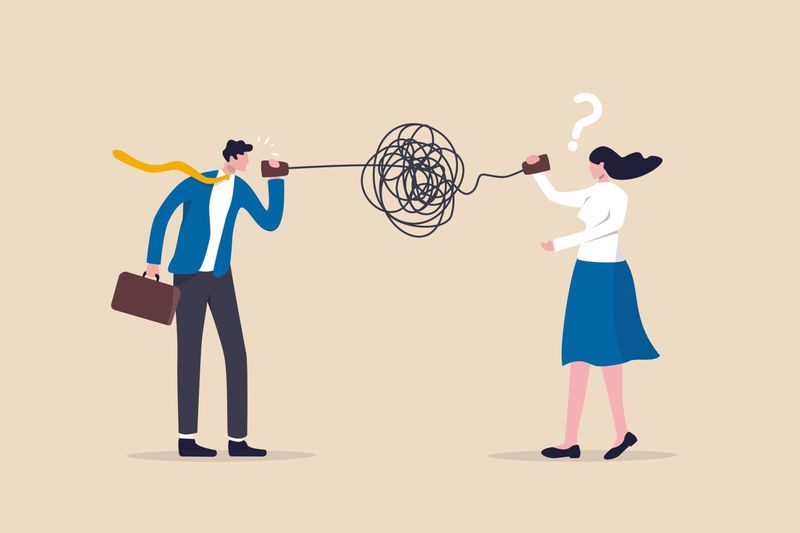Navigating the complexities of relationships can be challenging, but recognizing the red flags early on can save time and heartache. Here are 11 clear signs that you might be investing your time in the wrong relationship.
1. Constant Criticism

Criticism can be constructive, but when it becomes a constant in your relationship, it may signal deeper issues. Frequent negative remarks, especially about personal traits, can erode self-esteem and trust over time.
Imagine being in a setting where every action is scrutinized. Such an environment stifles growth and happiness. A relationship should be a haven, not a battleground.
If you find yourself walking on eggshells, concerned about triggering another critique, it might be time to reevaluate your situation. Relationships should empower, not diminish.
2. Lack of Communication

Communication is the cornerstone of any healthy relationship. Without it, misunderstandings and resentment can build up quickly. Consider the loneliness of sharing space without sharing thoughts.
When communication falters, connection deteriorates. Conversations that once flowed effortlessly now feel strained or nonexistent. This silence can create a chasm that becomes increasingly difficult to bridge.
If talking feels like a chore or important topics are avoided entirely, it might be a strong indicator that the relationship is on shaky ground.
3. Unbalanced Effort

A successful relationship requires effort from both parties. If you constantly feel like you’re doing all the work, the imbalance can lead to frustration and resentment.
Picture a seesaw where only one end is weighed down. Eventually, the imbalance causes the structure to falter. Relationships operate the same way and need effort from both sides to maintain balance.
Feeling exhausted from carrying the relationship’s weight alone might be a sign that it’s time to reconsider your investment.
4. Different Life Goals

Life goals can either unite or divide couples. When partners seek fundamentally different futures, it can lead to conflict and dissatisfaction.
Imagine dreaming of a quiet countryside life, while your partner envisions a bustling city career. Such divergent dreams can strain even a strong bond, leading to resentment over time.
If compromise seems impossible and future goals don’t align, it may be worth considering if the relationship can support each individual’s aspirations.
5. Lack of Trust

Trust is foundational to any relationship’s success. Without it, paranoia and jealousy can creep in, undermining the bond.
Picture living in a constant state of doubt, where every action is questioned. Such an environment is draining and unsustainable.
If trust is broken and efforts to rebuild it are unsuccessful, it might be a pivotal moment to assess the relationship’s viability moving forward.
6. Emotional Unavailability

Emotional presence is essential for a deep connection. If your partner remains distant, it can feel isolating and unfulfilling.
Think about the warmth of sharing not just physical space, but emotional experiences. Without this, the relationship feels hollow, lacking depth and understanding.
If emotional barriers persist despite attempts to connect, it may be a sign to explore whether this relationship can meet your emotional needs.
7. Avoidance of Commitment

Commitment is more than just a promise; it’s a mutual understanding of shared goals and futures. If one partner consistently avoids commitment, it could indicate deeper issues.
Imagine being ready to take the next step, yet feeling the resistance from your partner. This disparity can cause frustration and anxiety, casting doubt about the relationship’s future.
If commitment is always sidelined despite discussions, it could be a sign that the relationship needs reevaluation.
8. Constant Jealousy

Jealousy can be a natural emotion, but when it becomes excessive, it suggests insecurity and lack of trust. Constant jealousy can suffocate a relationship.
Think about living under constant surveillance, where every interaction is questioned. This environment can be stifling and toxic, inhibiting personal growth.
If jealousy dominates interactions and fuels arguments, it may be time to reconsider the relationship’s health.
9. Neglecting Boundaries

Boundaries are vital for personal and relationship health. Ignoring them can lead to discomfort and resentment.
Consider the importance of personal space and time. Without respect for these boundaries, individuals can feel overwhelmed and undervalued.
If boundaries are consistently overlooked, it could signal a lack of respect and understanding, critical components for a healthy relationship.
10. Frequent Arguments

Arguments are natural, but when they become frequent and unresolved, they can indicate underlying issues.
Imagine a home filled with tension, where peace is a rare visitor. This constant discord disrupts harmony and happiness.
If arguments overshadow the joy in your relationship, it may be time to address these issues or reconsider the partnership’s viability.
11. Lack of Support

Support is a cornerstone of loving relationships. Without it, partners may feel alone and undervalued.
Think of life’s challenges and the importance of having someone to lean on. A relationship lacking this support can be isolating and unfulfilling.
If support is absent when most needed, it may highlight a significant gap in the relationship’s foundation.

